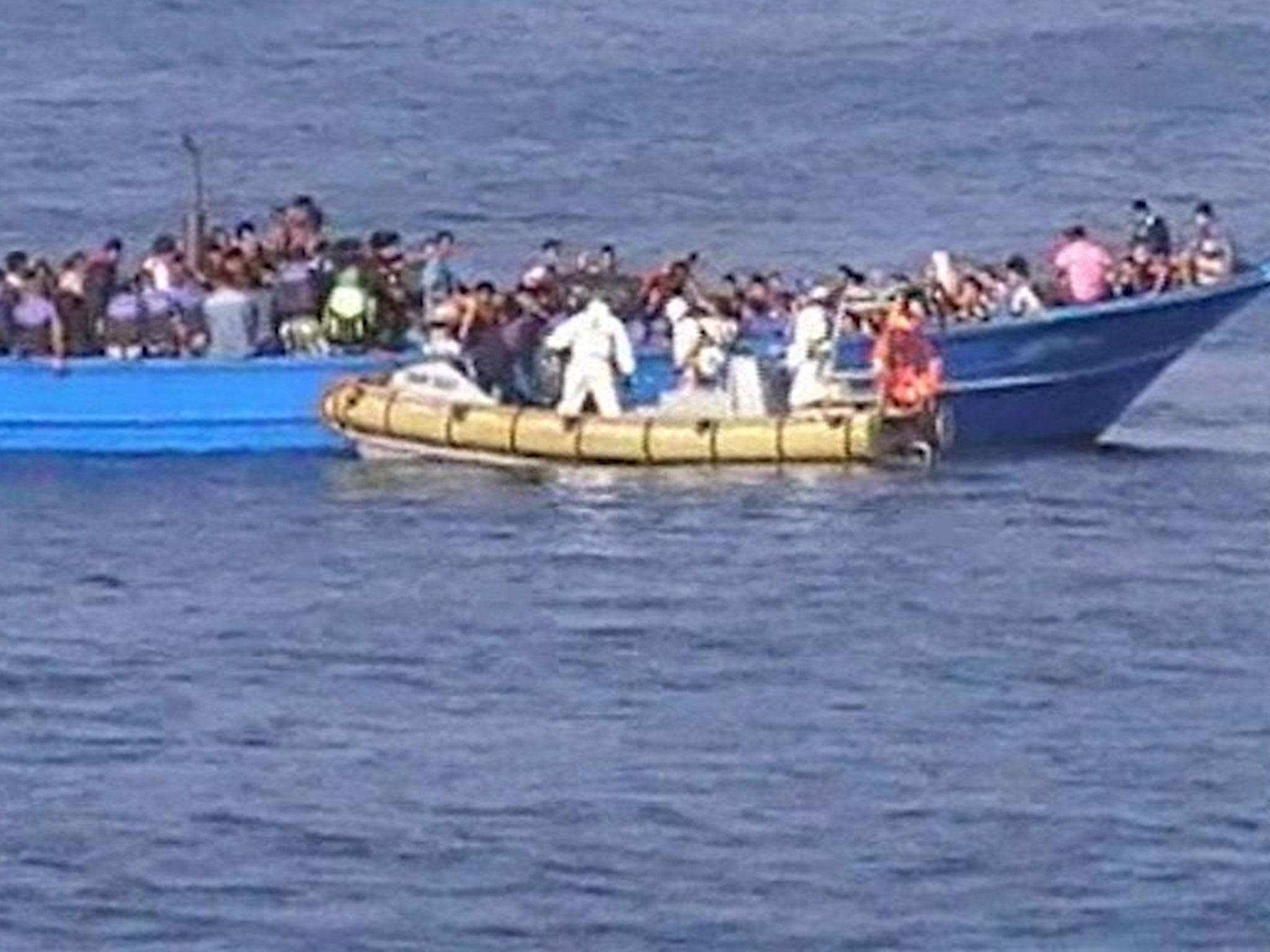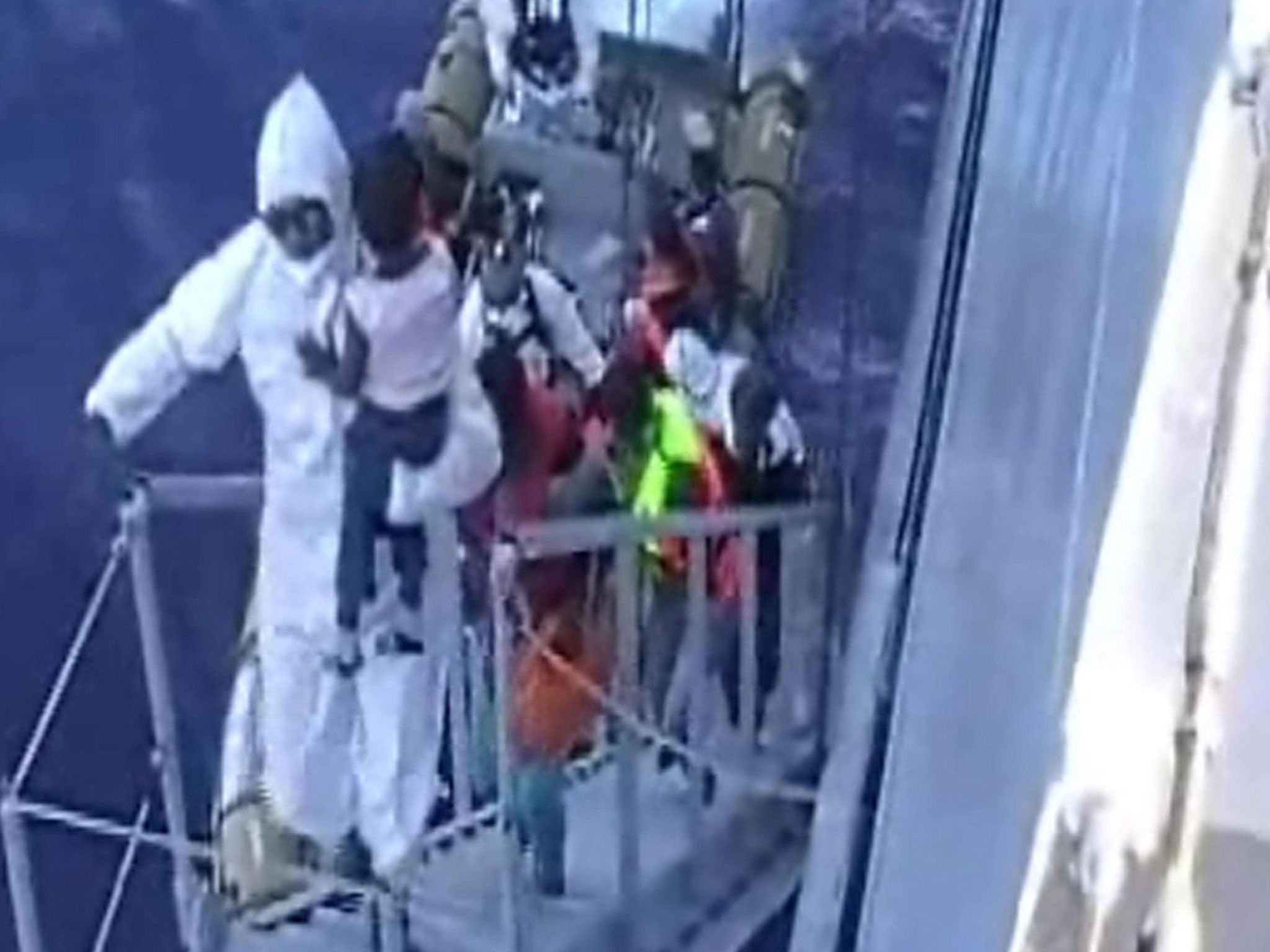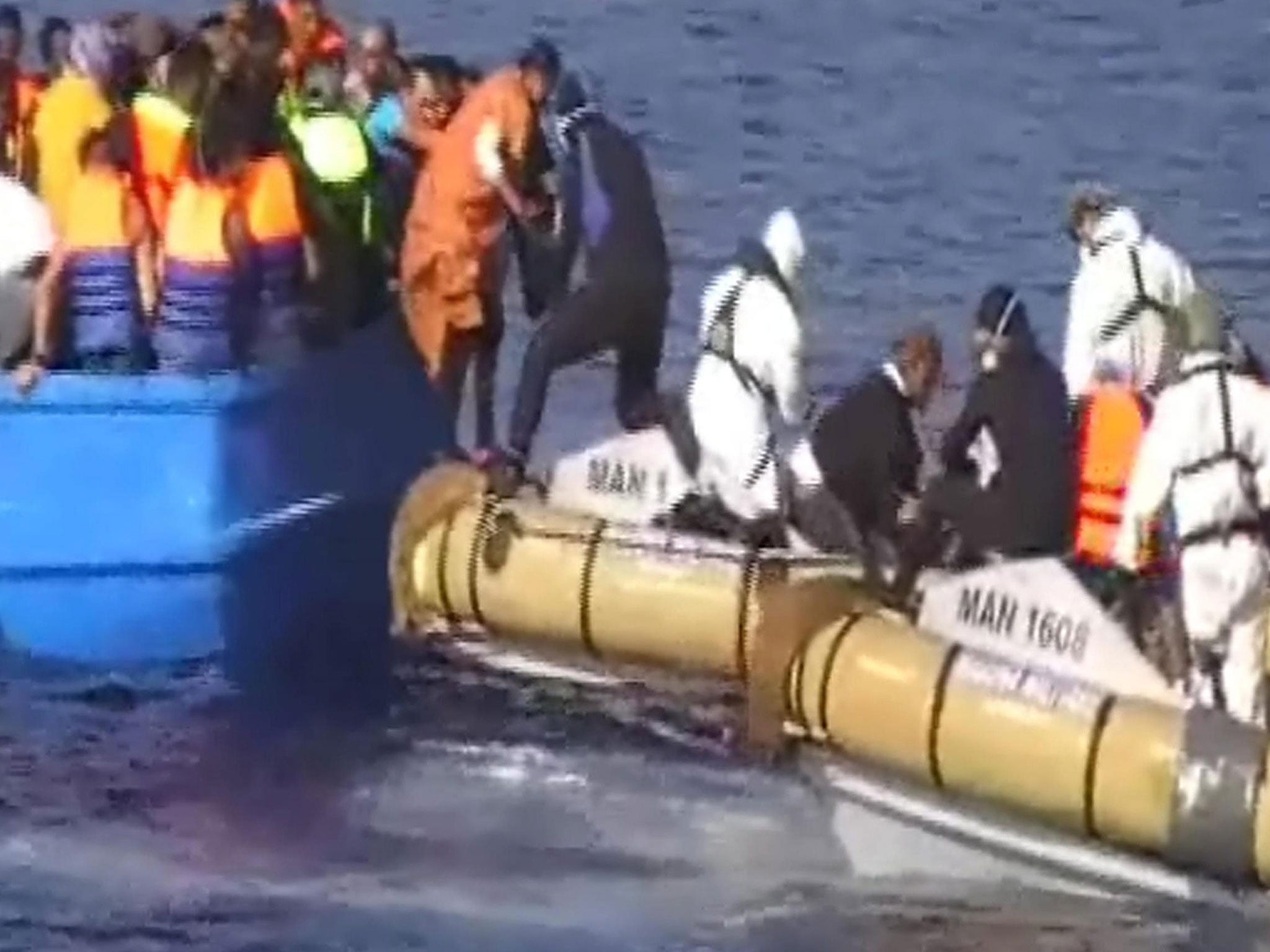Italian navy discovers dozens of bodies while rescuing 320 migrants from overcrowded smugglers' vessel off Libya
Refugees in hold of boat were apparently killed by fuel fumes

At least 40 people have died in the hold of an overcrowded smuggling boat in the Mediterranean Sea north of Libya on Saturday, apparently killed by fuel fumes, and some 320 others aboard were saved by the Italian navy.
“The dead were found in the hold,” Commander Massimo Tozzi, speaking from the navy ship Cigala Fulgosi that acted as the rescue ship. Asked by Rai News 24 how the migrants died, Commander Tozzi said: “It appears to be from inhaling exhaust fumes.”
When rescuers stepped aboard the boat, the bodies of migrants were “lying in water, fuel, human excrement” in the hold, he said.
“They are still counting the victims,” said Italy’s Interior Minister Angelino Alfano.
Commander Tozzi said the survivors included three children and 45 women, some of whom “were crying for their husbands [and] their children who died in the crossing”. The navy said that the survivors were later transferred to a Norwegian ship with the Frontex mission, a European effort to save migrants’ lives in the Mediterranean.

Elsewhere in the Mediterranean, people on a Turkish beach scuffled over places on one inflatable dinghy and frantically bailed out another to keep it from sinking early yesterday morning in their desperation to reach the Greek island of Kos.
Turkish authorities reported that 2,791 migrants have been caught in the Aegean Sea in the past five days alone, most of them Syrians. Kos is only 2.5 miles from Turkey at its closest point.
An estimated 2,300 people have died at sea this year trying to make the crossing, according to figures from the International Organisation for Migration (IOM) released on Friday. The Libya-to-Italy route is by far the deadliest. The exact toll of dead will never be known, as some smuggling boats are believed to have gone down at sea without rescuers being aware of them.
The migrants “put their lives in the hands of the smugglers” to escape from their dire conditions, said a UN refugee agency official, Barbara Molinario. The number of migrants trying to reach Europe by sea is on track to hit a record high this year, according to the IOM. Greece has reported 134,988 arrivals from Turkey this year, it said.
On the Turkish beach yesterday, in the darkness away from the shore, two migrant smuggling boats appeared to be intercepted by another vessel and their passengers taken into custody. It was not immediately clear if Greek authorities were once again intercepting migrants at sea.

Later in the night, another inflatable dinghy setting off from the beach appeared close to sinking under the weight of its human cargo. Three women jumped out and ran away shouting “No, no, no!”, clearly terrified at the prospect of making the crossing in the flimsy boat.
Their panic spread to other passengers, leaving only four men to bail out the water using plastic paddles. Then, using a tiny electric motor, they steered the boat towards Kos. As the dinghy gathered speed, three men who had earlier abandoned ship waded through the warm water to clamber back on board.
Issa Jaefer, a Syrian waiting in Bodrum to make the crossing to Kos, said the migrants are aware of the dangers. “We were left to die in Syria,” he said. “It doesn’t matter if we die on the rough sea. At the end, by God’s providence, we will reach the stability and security in Europe.”
More than 243,000 people have crossed so far this year, compared with 219,000 for all of 2014.
AP
Join our commenting forum
Join thought-provoking conversations, follow other Independent readers and see their replies
Comments
Bookmark popover
Removed from bookmarks